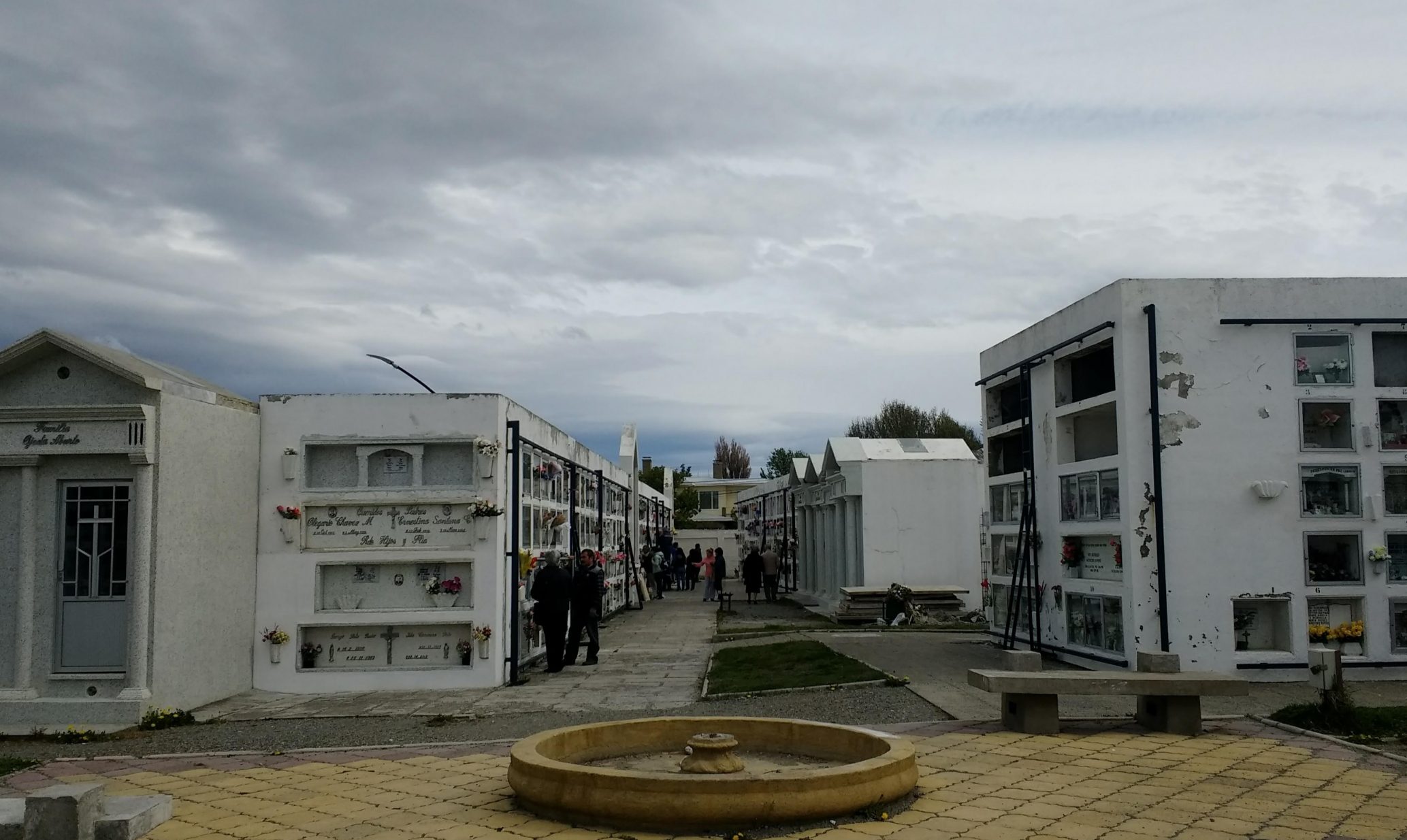The one-year anniversary of my mother’s death came and went recently, and other than calling my dad, I didn’t end up doing anything in particular on the day. I had been thinking about maybe going to the ocean, or the Berkeley rose garden, or one of the things she liked to do when she visited me. But I didn’t. We were planning for our trip to Chile, trying to finish up old work and get a start on new work, and—in all the ways that it does—life takes over. Life always takes over.
I’ve been thinking about how we scattered her ashes on her flowers—with very little ceremony, just my father and I, in the rain—and how I’ve always felt like the entire funeral industry was something I wanted as little to do with as possible; I’ve been thinking about how little I’ve ever considered it anything but an industry, as anything but a set of rituals and product that only exist to make someone money (and for you to pay for).
I was thinking about that as we walked through the municipal cemetery in Punta Arenas, the Sunday before All Saints Day, and watched the absolute hive of activity as families and workmen performed the routine special maintenance of grave tending: repairing the masonry, painting, weeding, planting, cleaning, and re-arranging. I took a few pictures, but the thing a picture won’t capture is the gentle murmur, the ambience, and the feel of families doing a sacred chore, but without the smoky-candles-and-incense that the word “sacred” usually invokes. There was sweat, there was sitting and resting, there were children playing and smoke breaks and little paint-flecked radios playing pop music; we saw a few people visibly grieving, but mostly we just saw people doing leisure work, the kind of “work” that “working” in your garden can be, on the day off, with your family, at the time and pace of your choosing. We saw life taking over.
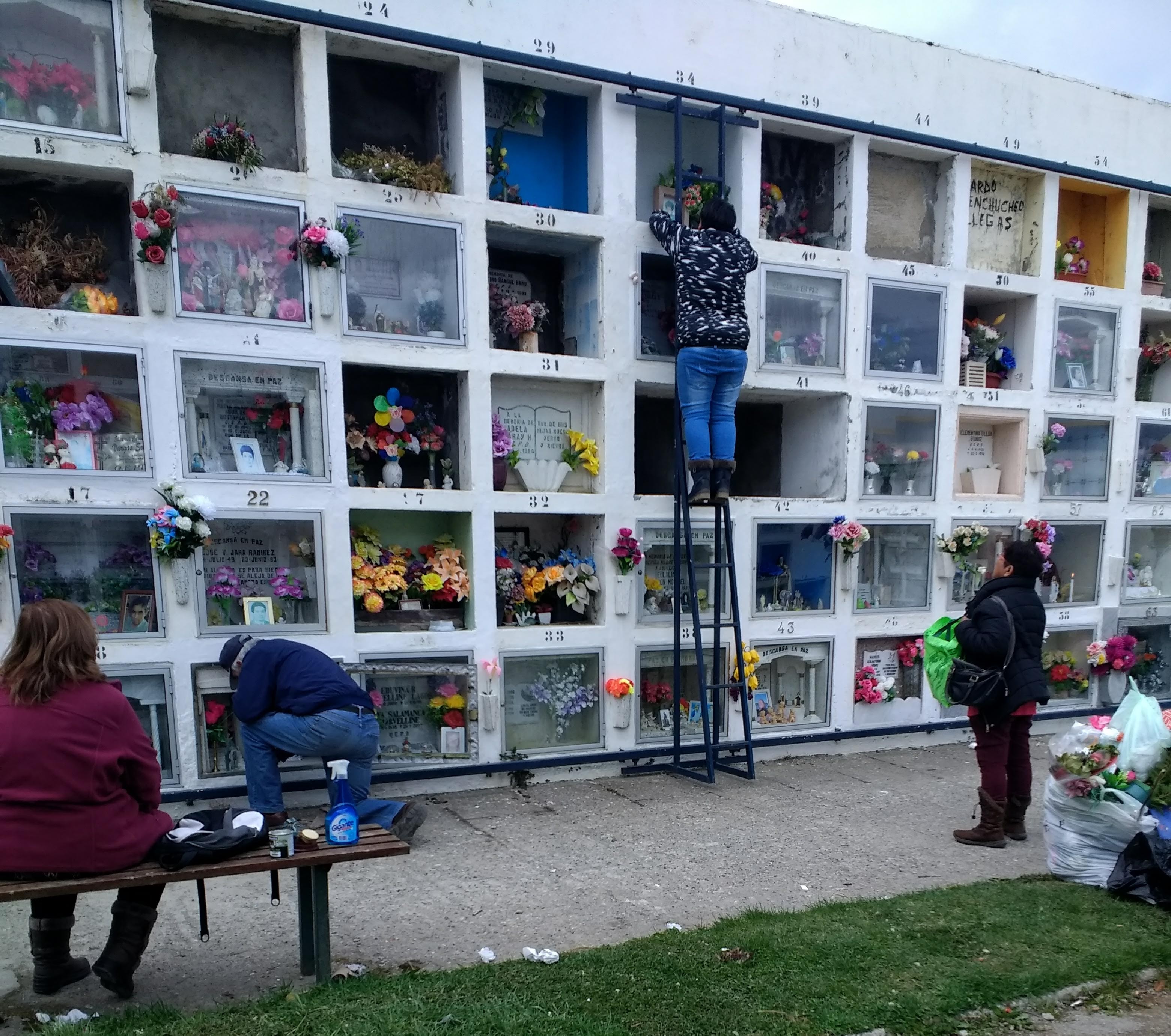
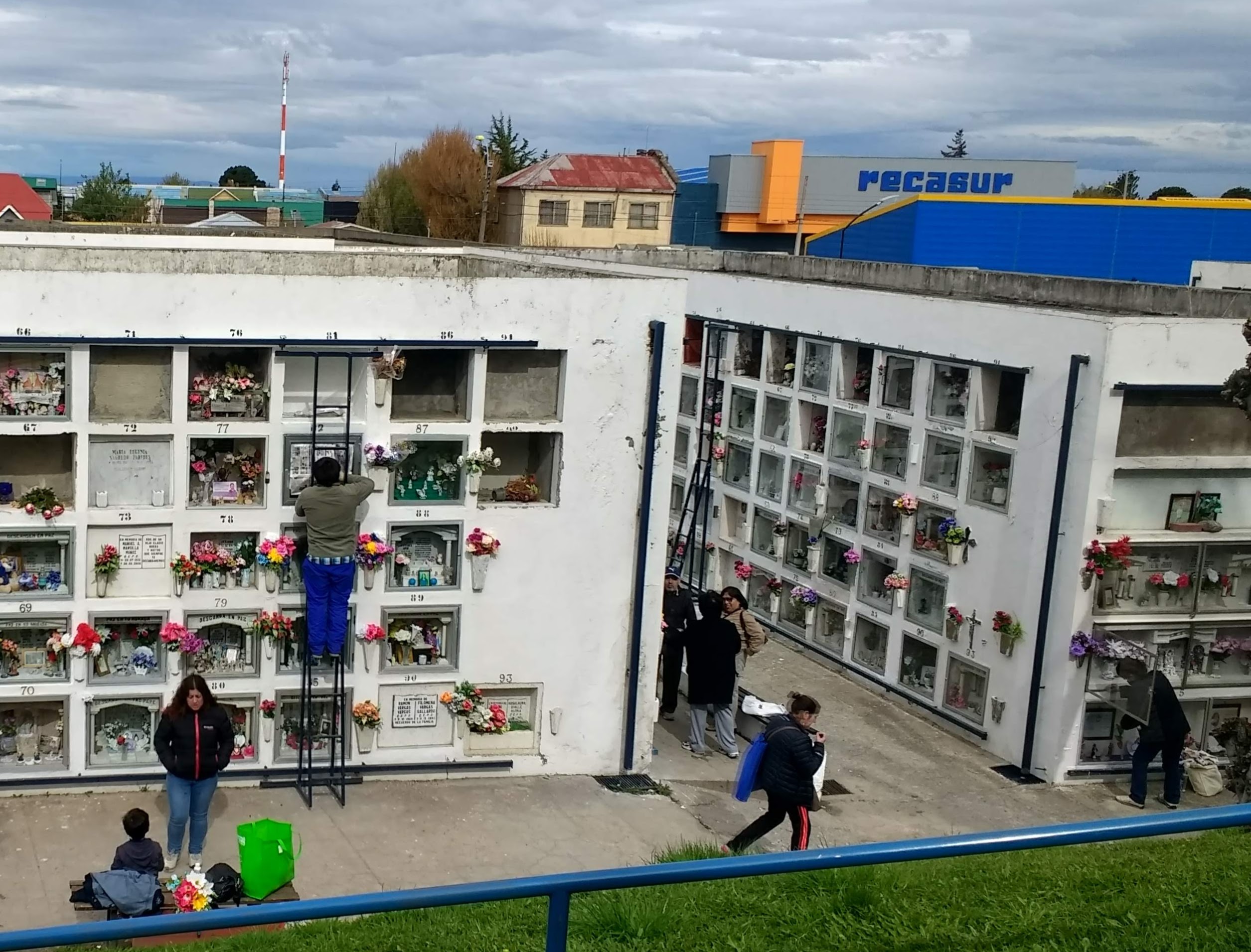
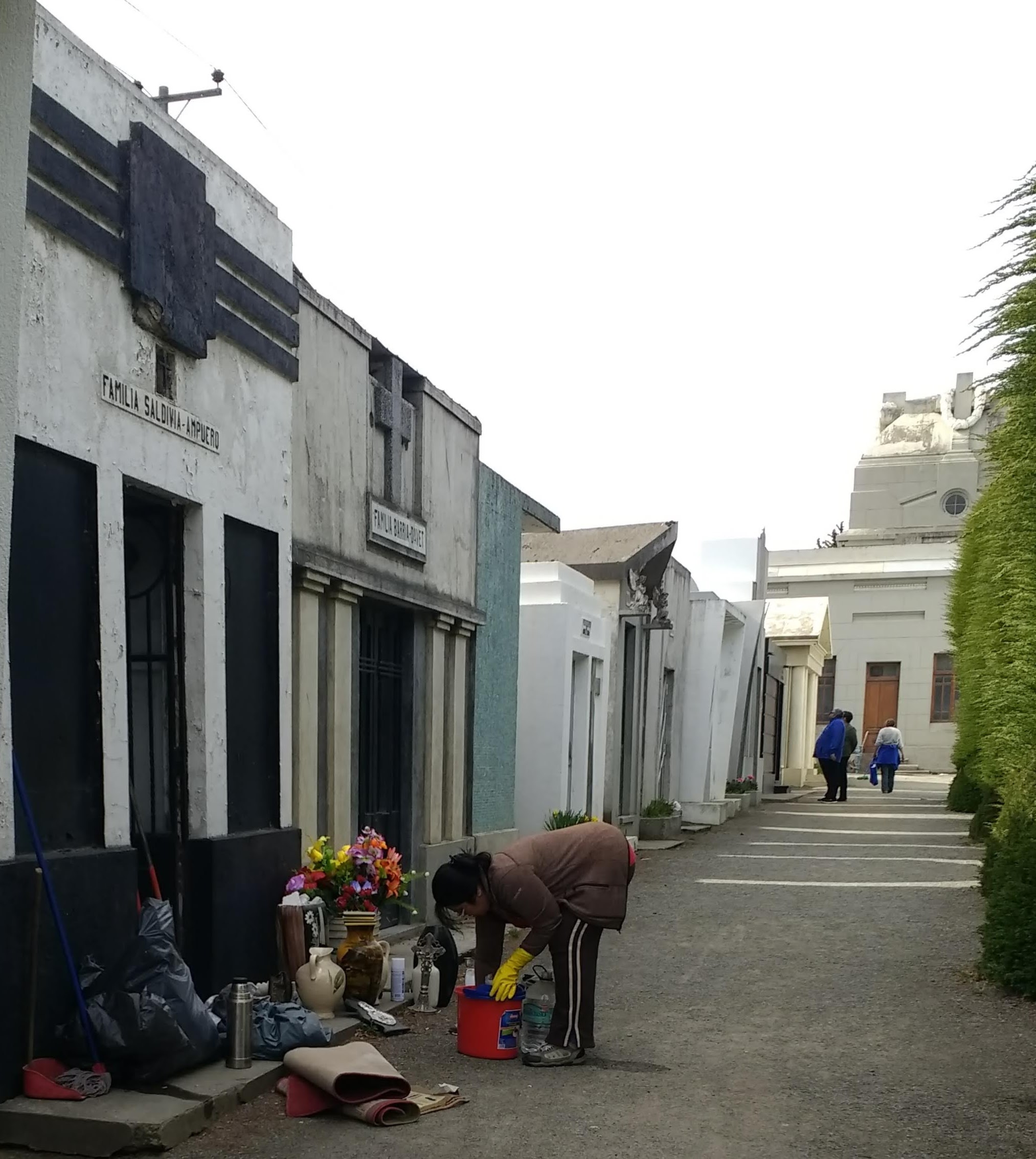
I think what moves me about all of it was how ordinary it all felt. I haven’t felt ordinary about my mother’s passing; it hasn’t felt routine, or normal, or anything as mundane as mixing paint, a thermos of tea, planting new flowers, throwing away old flowers, remembering to bring a bit of carpet to kneel on more comfortably.
I don’t think that’s wrong, mind you—I don’t think there’s any way to grieve, or not to—but it was moving, healing, to see people jostling elbows in a communal place, sharing space and sounds and company with the dead.
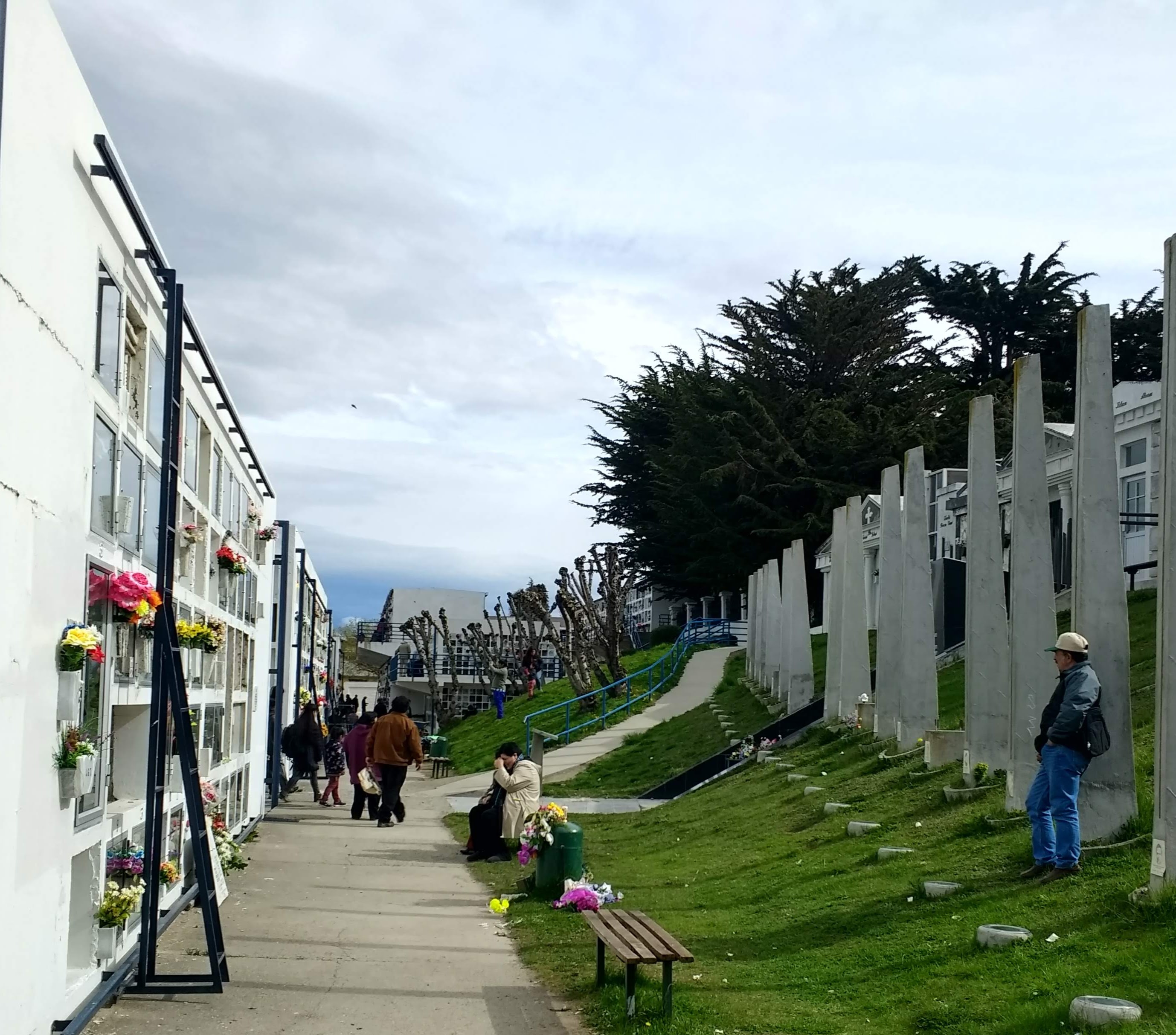
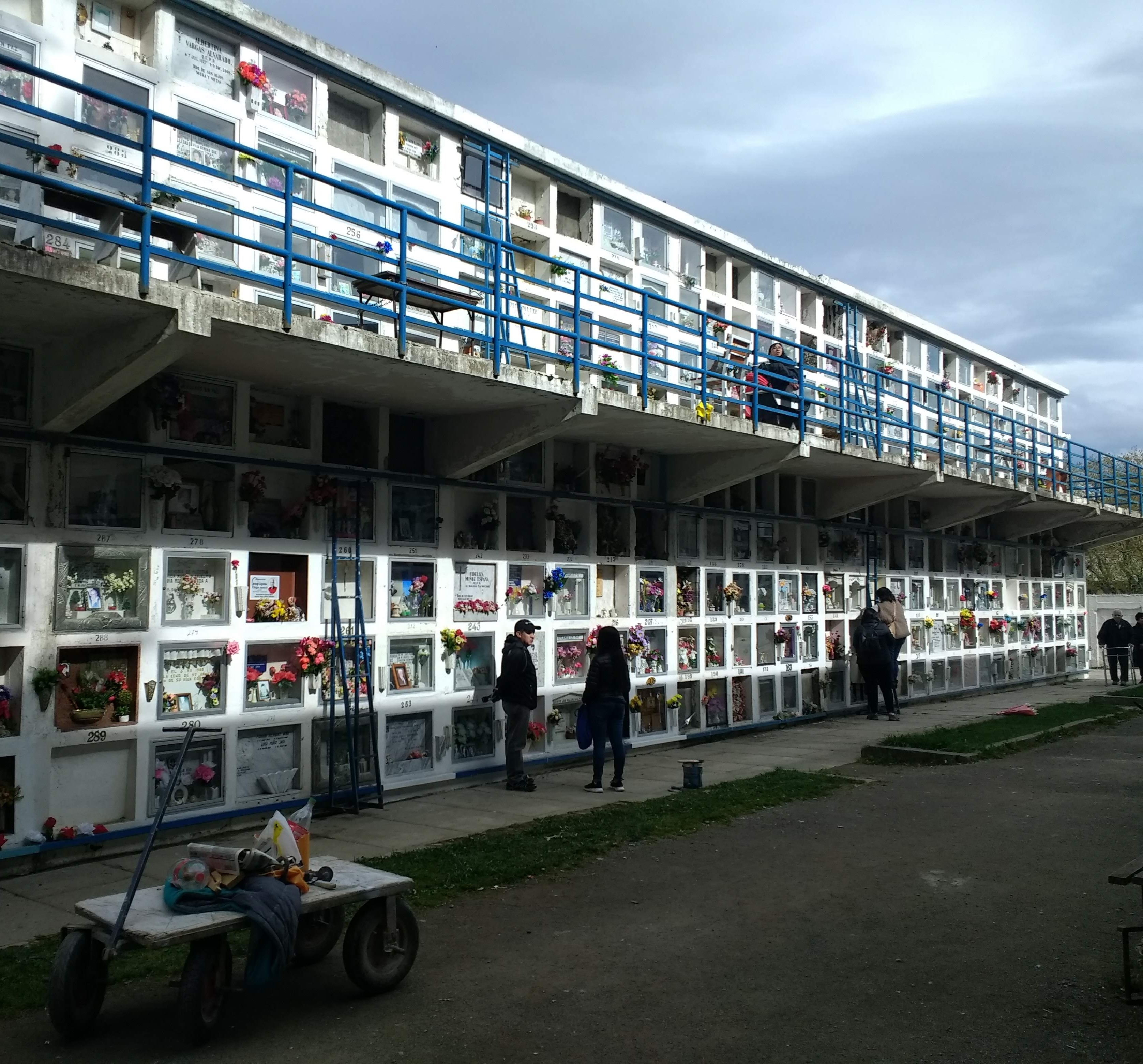
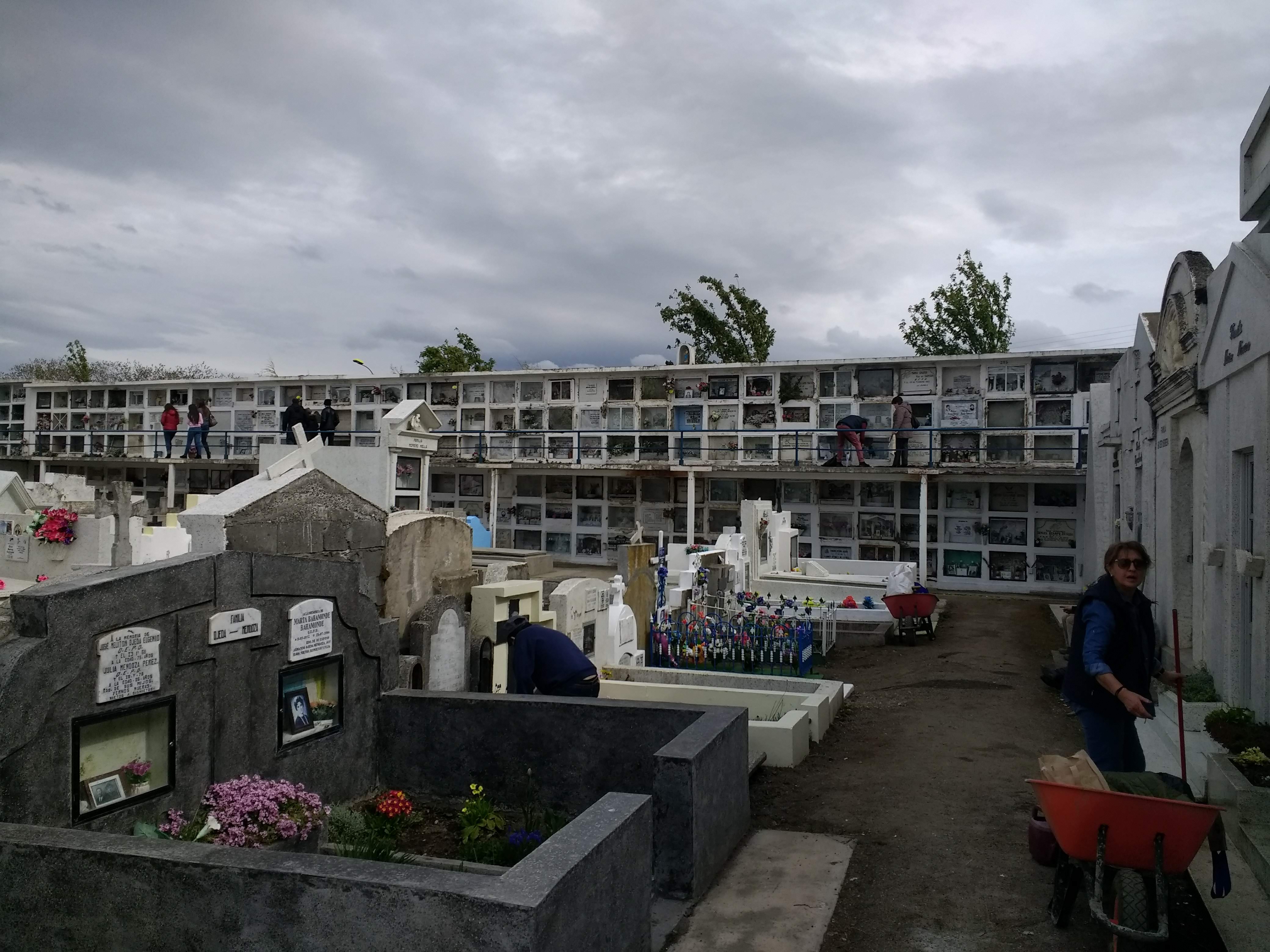
Cemeteries are not always like this. I was reading Isabel Allende’s My Invented Country on the plane, and she talks about how her husband would sleep in cemeteries when he was bumming around in his youth—no one will bother you in a cemetery!—and most of the time, I know, cemeteries are just empty places filled with the empty places in our lives where loved ones used to be. Most of the time, cemeteries are places where you can rest in peace, because life is elsewhere.
Only on days like the Sunday before All Saints Day—on days of rest when people have the time to take care of such chores—will a cemetery like this one be filled with people.
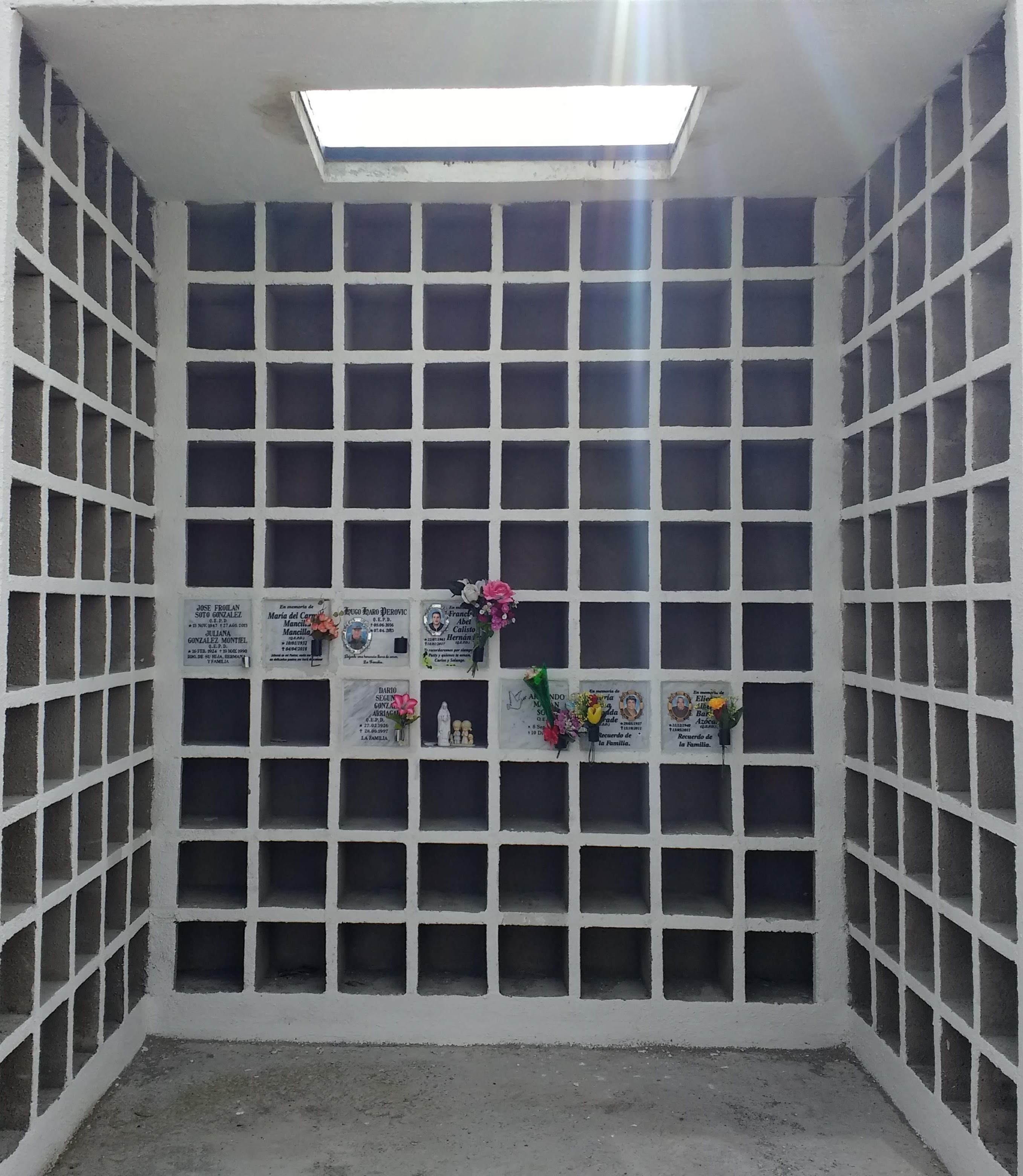
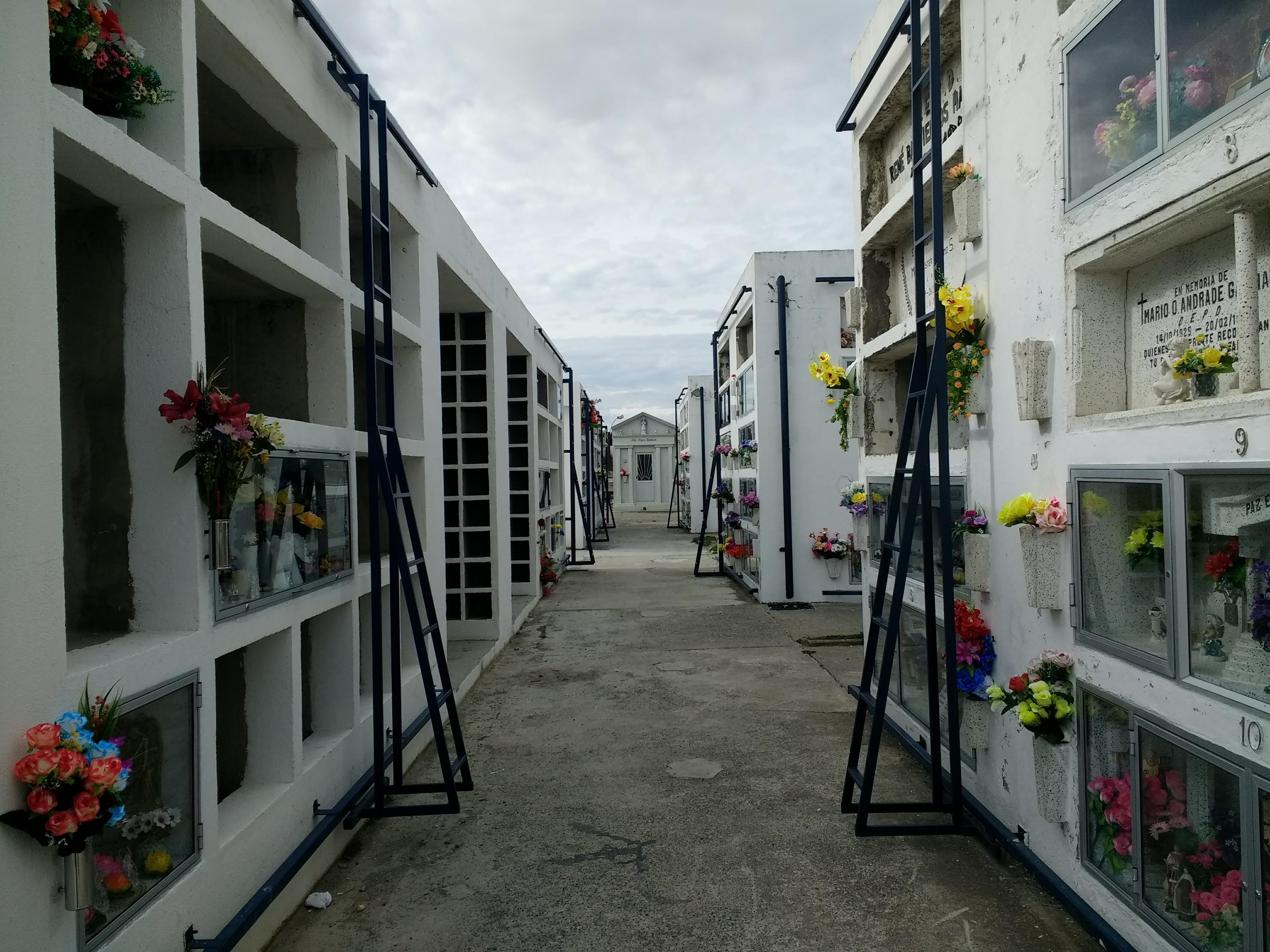
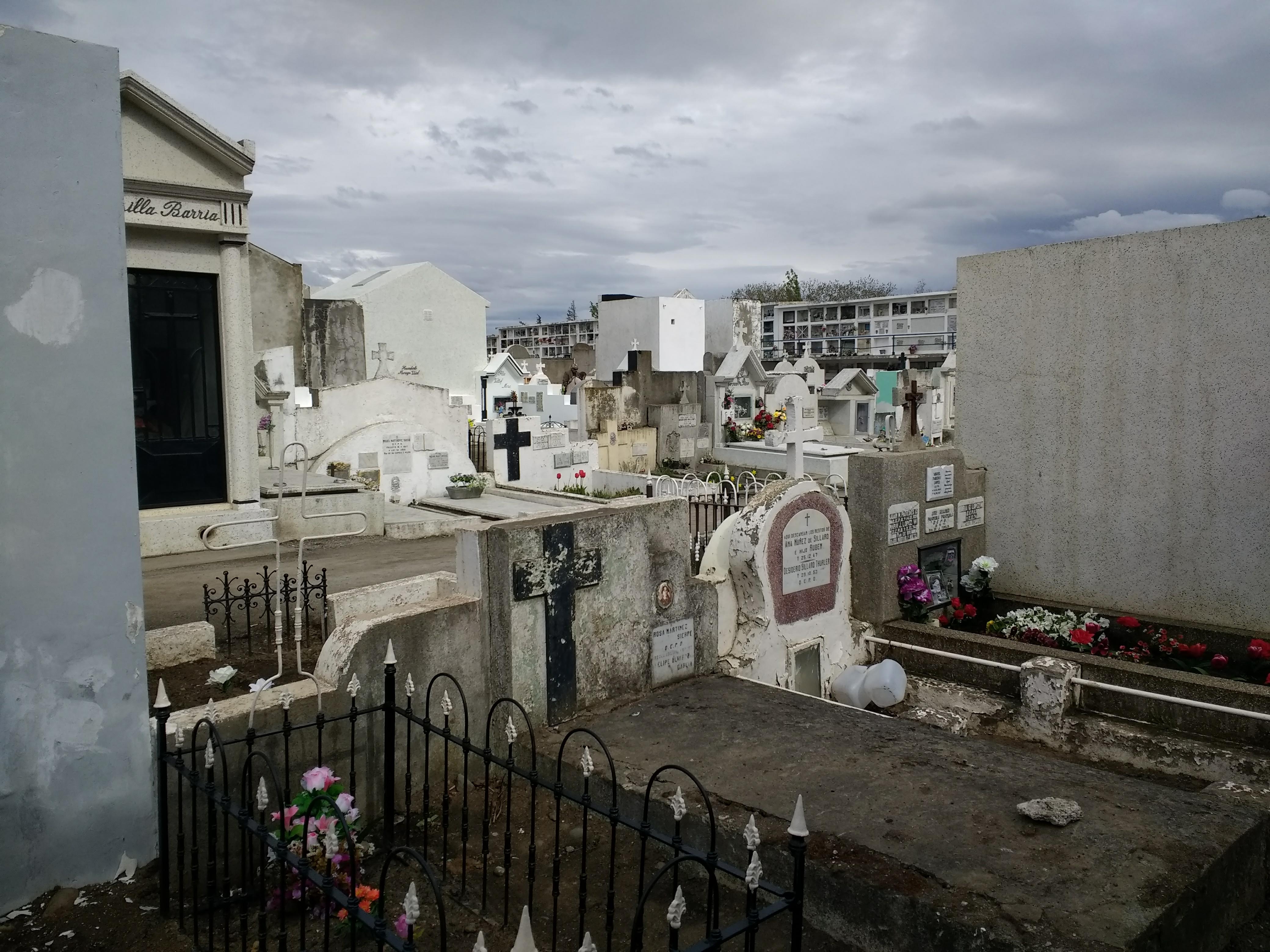
It was good, however, to be here, on this day. It was good to watch the work, the life, the movement. And as odd as it sounds, the thing I found myself focusing on—literally focusing my camera on—was the flowers. I found myself moved by all the dead flowers, neatly arranged in trash cans and messily over-spilling onto the ground.
There were so many.
I’d never really understood the point of putting living flowers on graves—graves are eternal, or close to it, while flowers fade so fast—but then, of course, that is exactly the point of doing it. The work of it. Flowers have to be tended and then replaced; flowers require constant care, and when they die, they have to be carted away. It gives the cemetery a kind of digestive and excretory system, a rhythmic intake and outflow; living flowers come in, and dead ones leave.
Mourning as peristalsis. I don’t know. I don’t know so much about mourning; some days, it’s all I know. But it pleases me, somehow, soothes me, to think of it this way. Life takes over.
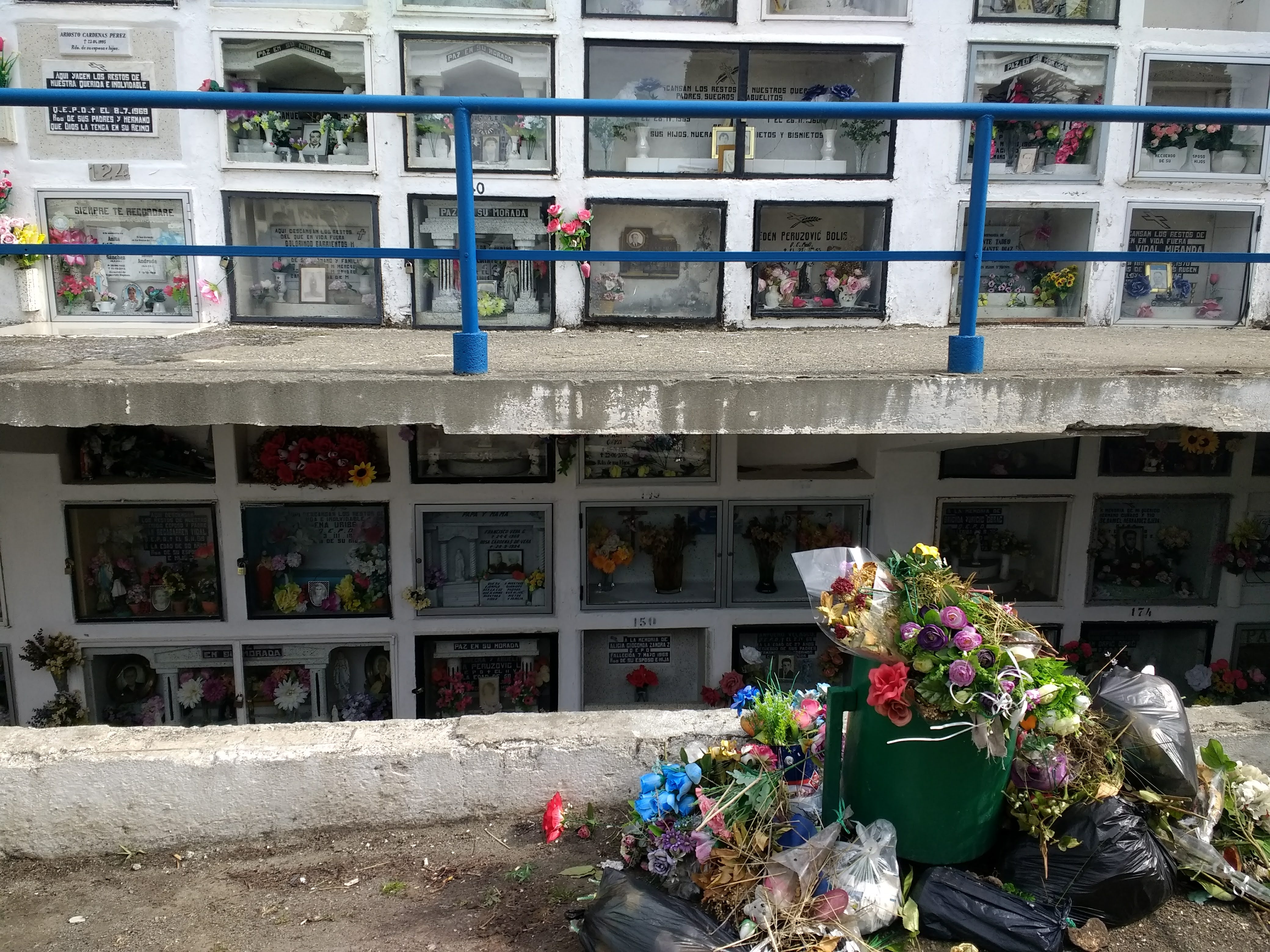
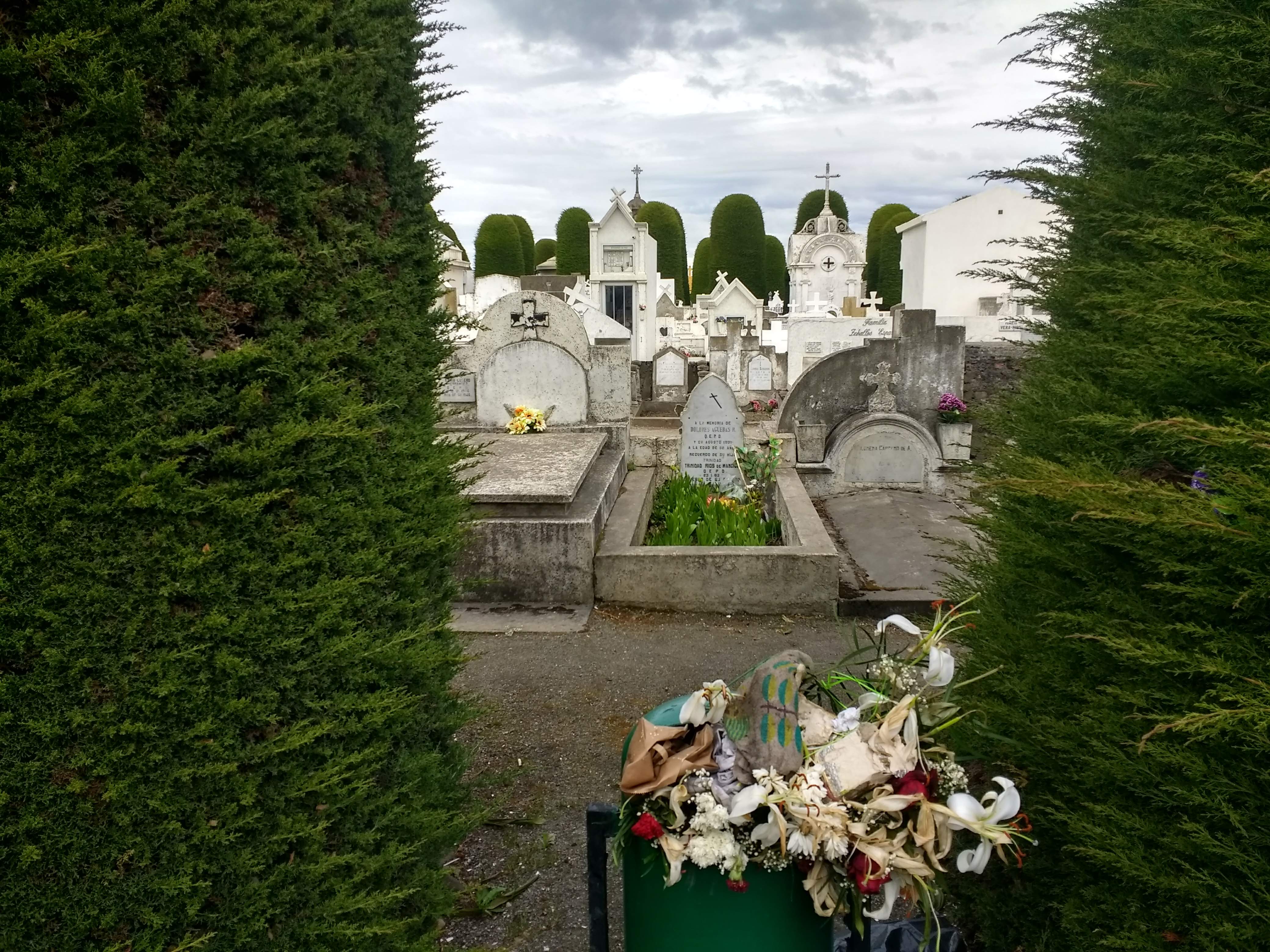
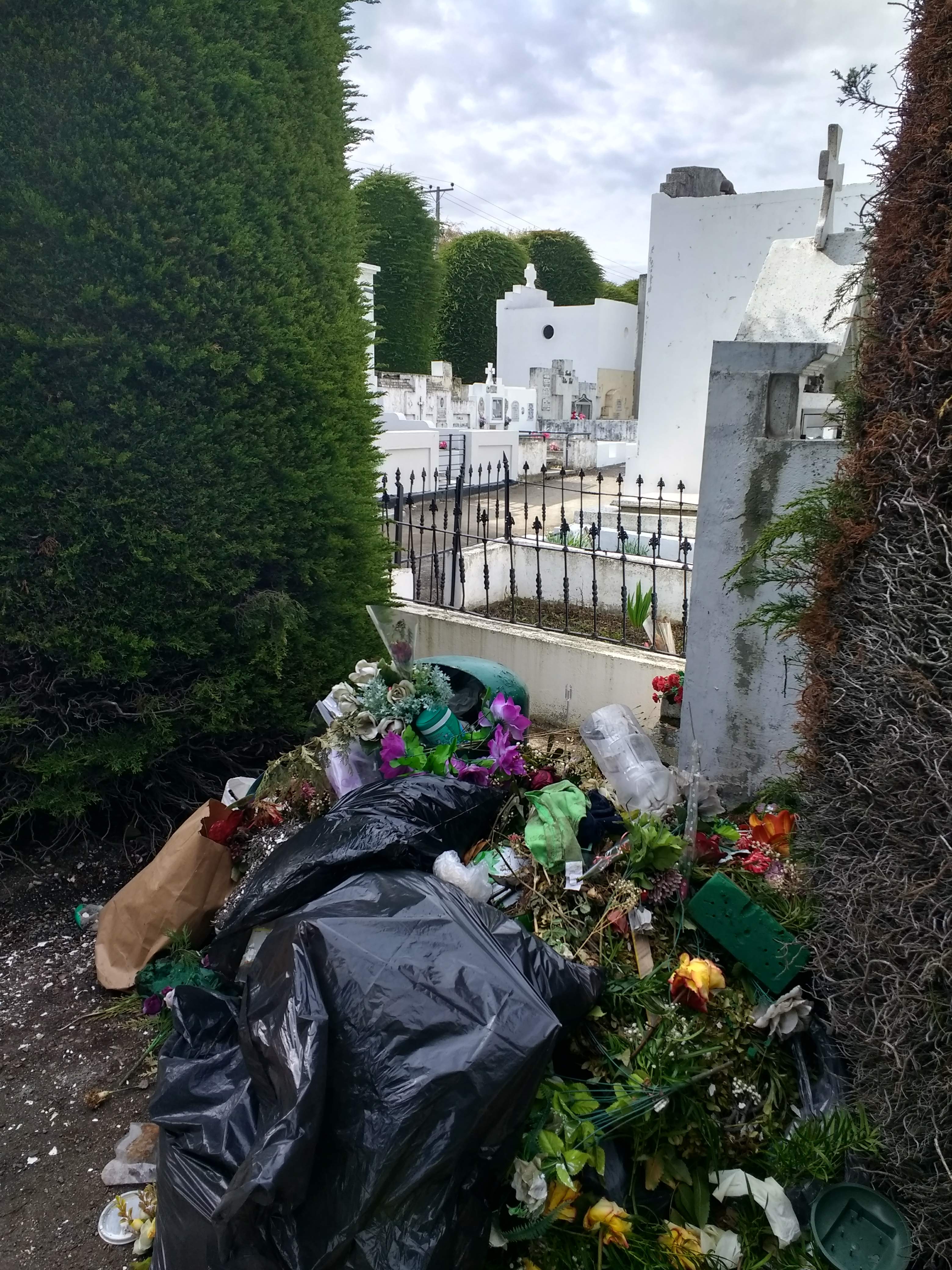
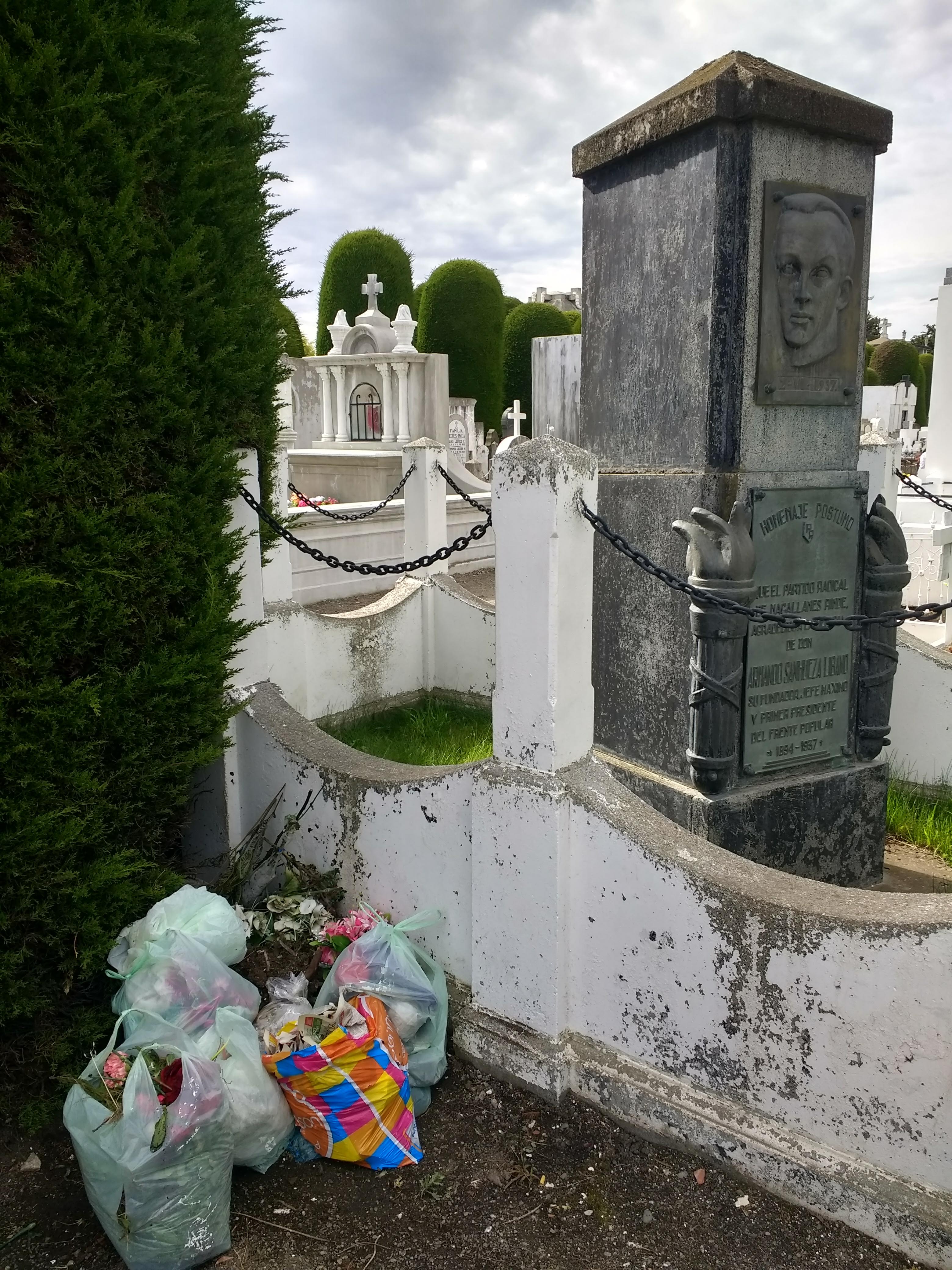
Aaron Bady

